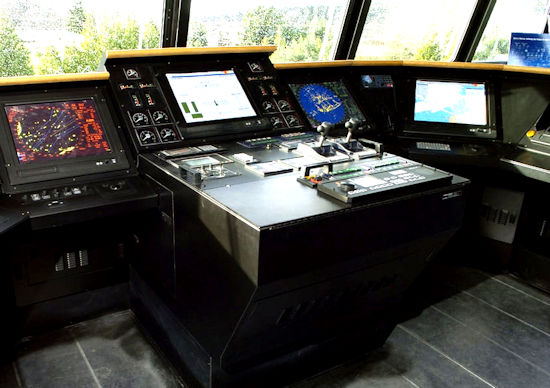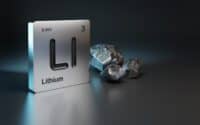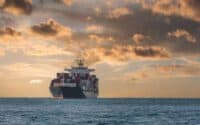Integrated Bridge Systems (IBS) and a Green Future

You’re already well-acquainted with the wizardry of Integrated Bridge Systems (IBS), so let’s cut to the chase and talk about how these systems are not just about slick navigation but also about steering us towards greener horizons. Thinking of an upgrade or curious about the new green wave in IBS tech? You’re in the right place.
* Please send feedback/suggestions to editor @ shipuniverse.com
IBS: Not Just Your Average Ship’s Brain
You know the drill with IBS: it’s the central hub for managing all the cool (and critical) stuff on your ship. From navigation and communication to engine controls and safety systems, IBS is like the ultimate multi-tasker, ensuring you’re on course, in control, and safe. But here’s the kicker: the latest IBS tech is more than just about getting from A to B efficiently; it’s about doing it in a way that loves our oceans.
IBS: Your Eco-Friendly First Mate
So, how does IBS fit into the green puzzle? Think of IBS as your right-hand man in sustainable sailing. These systems have evolved from just being about getting from point A to point B to becoming a key player in eco-friendly decisions. We’re talking optimized routing that saves fuel and cuts emissions, real-time monitoring for energy efficiency, and data analytics that help you make smarter, greener decisions. With the latest upgrades, your IBS isn’t just helping you navigate the seas; it’s helping you protect them.
IBS Tweaks for Less Fuel Freaks
You’re no stranger to the bells and whistles of IBS. But let’s talk about its role as a fuel-saving hero. Modern IBS systems are packed with features designed to minimize fuel consumption.
- Smart Routing: This isn’t just about finding the shortest path; it’s about finding the ‘smartest’ path. Factors like ocean currents, weather patterns, and traffic are all crunched to plot a course that’s not just safe and quick but fuel-efficient too.
- Speed Management: It’s not about full steam ahead anymore. IBS helps in adjusting speeds intelligently, ensuring your vessel is running on the sweet spot between time-efficient and fuel-efficient.
- Fuel Monitoring: Real-time monitoring means you know exactly how much fuel you’re burning. This data is gold, helping in tweaking operations for better efficiency.
Click here to find your Ideal IBS
More Than Just Fuel Savings
Saving on fuel? That’s just the tip of the iceberg. There’s a whole iceberg of benefits beneath.
- Cost Cutting: Less fuel burn means more money saved. In the long haul (pun intended), these savings can be substantial.
- Emission Reduction: Less fuel burnt equals fewer emissions. By reducing your carbon footprint, you’re not just complying with the latest environmental regs; you’re also doing your bit for the planet.
- Operational Efficiency: With IBS, you’re not just saving fuel; you’re optimizing operations, leading to smoother sailing in all aspects.
IBS: The Eco-Warrior of the Seas
Modern IBS systems aren’t just about navigating and communication. They’re now armed with advanced emission control tech. Think of IBS as your eco-conscious co-captain, keeping an eye on emissions and helping you steer a cleaner course.
- Exhaust Gas Scrubbing: IBS can be linked with systems that clean up the ship’s exhaust before it hits the open air. This means fewer harmful gases like sulfur oxides (SOx) being released.
- Emission Management Software: Imagine having a smart system that constantly analyzes and adjusts your ship’s operation for the lowest possible emissions. That’s your upgraded IBS – a real-time environmentalist.
Staying on the Right Side of the Law
Regulations on maritime emissions are getting tighter, and for good reason. But keeping up can be a headache. Here’s where your IBS steps in.
- Meeting International Standards: Remember the IMO 2020 Sulphur Cap? IBS helps you meet these standards by managing fuel types and exhaust systems, ensuring you’re not just compliant but also contributing to a cleaner marine environment.
- Documentation Made Easy: IBS also helps in logging and reporting emissions data, a big plus when it comes to proving compliance during inspections.
Innovations: The Cool New Wave in IBS
The world of IBS is constantly evolving, with new features and capabilities being added regularly.
- AI and Predictive Analytics: Artificial Intelligence isn’t just for sci-fi. In IBS, AI can predict the most fuel-efficient routes and speeds, further reducing emissions.
- Integration with Renewable Energy Systems: Some IBS systems are now designed to work seamlessly with alternative energy sources like solar and wind power, paving the way for a greener future in maritime operations.
Data Analytics: The New Captain’s Best Friend
In the world of modern navigation, data is king. And the latest IBS setups are all about making data work for you.
- Smart Decisions Through Analytics: Imagine having a system that analyzes weather patterns, sea currents, and vessel performance to suggest the most fuel-efficient route. That’s your IBS with advanced data analytics.
- Predictive Maintenance: Why wait for something to break? Predictive analytics in IBS can alert you about potential issues before they become problems, saving time, money, and, importantly, reducing unnecessary fuel consumption.
Sailing on Sun and Wind – IBS Meets Renewable Energy
The future of navigation isn’t just about using less fuel; it’s about using smarter energy.
- Solar-Powered Systems: Some IBS are now getting friendly with the sun. Integrating solar power for some of the ship’s operations reduces reliance on traditional fuel.
- Wind Assistance: Harnessing wind power isn’t new, but integrating it with IBS to optimize route and speed based on wind conditions? That’s cutting-edge.
Looking Ahead: A Green Horizon
As we conclude this deep dive into IBS and sustainable navigation, let’s take a moment to look at the big picture.
- Current Impact: Right now, IBS is revolutionizing how we think about and conduct maritime operations – it’s not just about getting from point A to B, it’s about doing it in the most efficient, safe, and environmentally friendly way possible.
- The Road Ahead: The future looks bright and green. We’re talking about further integration with renewable energy, more advanced data analytics, and who knows, maybe even fully autonomous, eco-friendly ships!
Click here to find your Ideal IBS
So, there you have it – a sneak peek into the future of eco-friendly navigation with IBS. Whether you’re considering an upgrade or just keeping up with the trends, one thing’s clear: the journey towards sustainable seas is well underway, with IBS at the helm. Happy sailing, and here’s to cleaner, greener seas ahead!

Do you have a Maritime Product or Service that may be of interest to Shipowners? Tell us about it here!
Do you have feedback or insights? Please reach out to editor @ shipuniverse.com



